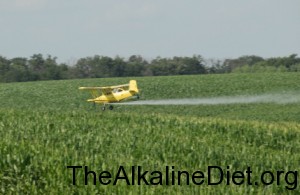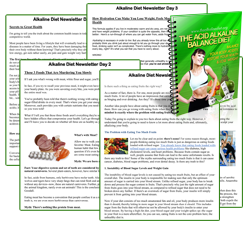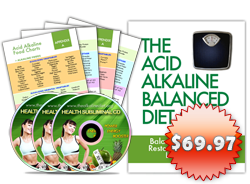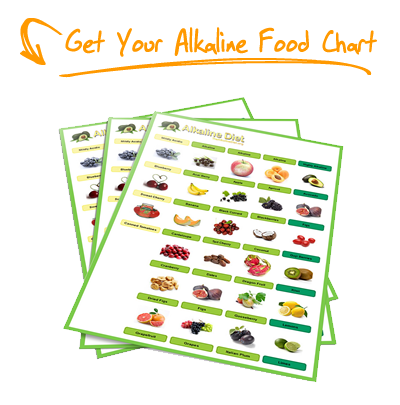Are You Eating Nutritionless Vegetables That Are Full Of Pesticides?
Posted on 15. Apr, 2010 by Staff Writer Candy Del Carmen in Blog
 While eating nutritious vegetables and fruits, no one will be thinking that they might be eating a mouthful of toxic and harmful chemicals. People may not realize that everyday, we are exposed to poisonous residue of pesticides left in your food. A Harvard Nutritionist claimed that these are poisons that kill living organisms below the earth and strike at the foundations of the minerals which are essential in healthy sustainability.
While eating nutritious vegetables and fruits, no one will be thinking that they might be eating a mouthful of toxic and harmful chemicals. People may not realize that everyday, we are exposed to poisonous residue of pesticides left in your food. A Harvard Nutritionist claimed that these are poisons that kill living organisms below the earth and strike at the foundations of the minerals which are essential in healthy sustainability.
How pesticides pose threat to public health?
The foods we consume might have some remains of the pesticide, a chemical substance used to terminate insects and pests. Children are most vulnerable to this toxic element whose bodies are not yet well developed and by too much exposure; it may contribute to learning disorders. According to Environmental Working Group (EWG), by eating contaminated foods that have at least 15 pesticides a day can be damaging if exposed over long period of time.
The Unites States Consumer Reports revealed the list of fruits domestically grown and have the high residue of pesticides. The studies found out that peach, winter squash, apples, pears, spinach, grapes, celery and green beans are fruits which have the high toxicity values.
In some part of Europe, there are proposals to ban the use of this harmful chemicals and this was condemned by the National Farmers Union. They posed a threat to double the price of vegetables and fruits if the proposal will take effect. The only solution they can see is for the chemical industry to innovate ways to lessen the harmful chemicals. For the time being, what they do is to ban a product that is proved to deal with farming and environmental problems.
Use of Poisonous Chemicals in Agriculture
One of the related problem facing all cultivators are connected to poor soil management that brings negative effect to increase contamination, reducing plant nutrient, lower oxygen content, compaction, soil erosion and pest attack.
The soil is the basic wealth in the agricultural world. Over reliance on fertilizers may cause for this problem. It may be effective when combined with organic fertilization such as manure, compost and crop wastes. There are essential nutrients needed to harvest healthy crops. These are phosphorus, calcium, potassium, magnesium and sulphur.
However, the displacing of the sustainable practices by using too much chemicals have lost the potential of the soil to provide more nutrients. As the result, the outcome has been poor crops and depleted soils. And now, the lack of nutrients and malnourished crops are prone to pests or parasites.
Francis Chaboussou, a French biologist stated a trophobiosis (from Greek word nourishment and life) theory on the belief of many farmers think that the best way to kill pests which are damaging to crops is to poison them through pesticides.
According to the theory of trophobiosis, since pests have no proteolitic enzymes necessary for the breakdown of proteins, they obtain enough amino acids in the cell sap. They starved to death in healthy plants and build their own species-specific proteins causing them to multiply rapidly.
Disease organisms grow on free amino acids in the plant’s cell sap and normally increase after heavy fertilization with nitrogen requiring more poison to control. He confirmed that the efficacy of the chemicals against pest may lose its efficacy after many applications. His approach is to focus on the preservation of the crops by not poisoning them with toxins but to stimulate resistance by preventing the pest from attacking.
The role of pests in ecology
Many people don’t know the important role of pests in ecological process. What we understand is that it can damage the crops and therefore needs to be terminated to prevent from spreading. The truth is, the actions to be done depend on the major ecological features of the population of pests. There are some which are carried by air and migrate into the fields, some can increase rapidly and cause epidemics, while others are slower to cause damage.
Pest management will have to be given after carefully evaluated the degree of pest attack and crop loss. Some factors to consider are how the plants grow, how pests cause damage and what are the components of crop yield?
The role of pest (study of how organisms work together with the nonliving components such as space and weather and living organisms) to ecology must not be overlooked by farmers. Pests destroy the plants to let them return to the earth and allowing the healthy crops to survive. Healthy crops which grow on healthy soil are naturally protected from the attack of pests.
Ecology gives context to how pest can be managed because it would only occur if disturbed by natural disasters, crop management such as over-use of nitrogen and insecticides and enormous pest immigration.
A combination of technique in Integrated Pest Management (IPM) is an ecosystem-based management that strictly focuses on the prevention of the damaging pests through biological control, use of resistant cultivars, habitat manipulation and modification of cultural practices. There is an established guideline when pesticide is needed to use and to what certain degree.
The Outset of Organic Farming
Organic farming in agriculture sustains the health of soil, the people as well as the ecosystem. It relies on green manure, crop rotation, compost and biological pest control.
Organically grown food is recognized because of its nutritional value and mineral as to compare with conventionally grown vegetables and fruits.
The process of cultivating does not use pesticides and farmers just use low cost of microbial instead. The use of these harmful chemicals in conventional farming can pose unreasonable risks that are damaging to health.
Also, organic farmers do not use genetically modified (GM) products. There are many critics who have objected to its perceived safety, economic and ecological issues. There is a possibility that it may harm public health and environment wherein the produce is exposed to radiation or chemicals to create stable change.
The low input produces less greenhouse emissions and may consider it more climate and environmentally friendly. The sustainable method of farming is promoted and the soil is said to have improved. It can resist diseases in properly balanced soil without harming our environmental resources. Organic farming can ensure the sustainability for our future generation.
Arguments on Conventional Farming versus Organic Farming
The argument whether organic farming can feed the developed world is still a major concern. It is always disputed that without the use of genetically modified products, pesticides and other agricultural toxic chemicals are not viable in the developing world
Another concern raised is the use of manure as fertilizer that may lead to contamination and development of E. coli bacteria. However, it was proven that with the proper adherence of maintaining the precise time in composting the manure can greatly reduced the number of bacteria.
Market demand of organic food
Since 1990,the demand in organic food as much healthier option have rocketed to $46 billion in 2007 with all the advocacy made by organic farmers to patronize the crops that are better for environment and well-being. The price is much higher than the conventional crops because it costs more to produce. Since it is free from any synthetic pesticides and fertilizers, there is no pesticides residue on the crops and develop its natural defense mechanism in the form of phenols. It is known to be as the antioxidant protecting us from any harmful chemicals and toxins leading to cancer.
The US Environmental Agency published some of the precautionary measures to reduce the harmful effects of the foods we usually taken. Washing the vegetables and fruits after peeling can reduce the toxicity. Some are using an alternative soap organics to wash veggies and fruits that eliminate naturally some residues found on it.
Healthy by regulatory standards simply means wise choices in buying products that have benefits of enough nutrients, vitamins and minerals.
References:
http://www.knowledgebank.irri.org/IPM/index.php/application-of-ecology-to-pest-management-crop-health-2744
http://orgprints.org/14750/1/14750.pdf
http://www.farmforprofit.com/bro.html
http://en.wikipedia.org/wiki/Organic_farming#Controversy
http://www.epa.gov/pesticides/factsheets/riskassess.htm
http://www.pesticidereform.org/section.php?id=38
http://www.independent.co.uk/news/world/europe/farming-pesticide-ban-too-far-too-fast-1221745.html
http://www.consumerhealth.org/articles/display.cfm?ID=19990809222752
http://www.sixwise.com/newsletters/07/06/13/the_20_fruits_and_vegetables_with_the_most_pesticides_the_20_with_the_least__and_what_to_do.htm





Recent Comments